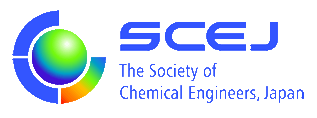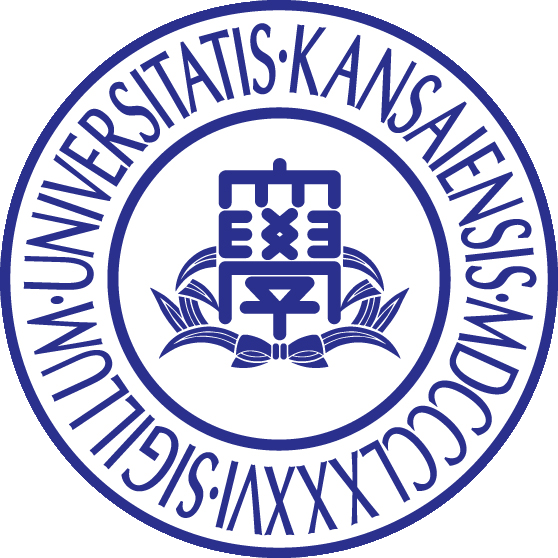| Organization |
|---|
| Center for Academia-Industry Cooperation |
Oral session (SS-1 to SS-8)
SS-1 Technical Innovations to Sustain Japanese Industry -
Mar. 16 (Mon) 9:00-11:55 Hall E (Program)
The working population of Japan is declining significantly. Companies need to create more value-added technologies and increase their competitiveness through innovation. Recently, global attention has been focused on SDGs and ESG management. We focused on "sustainability" this time. Among them, we will introduce the latest technology centering on the environment / energy technology that Japan is good at. SS-2 Research Report Meeting on Advanced Chemical Production Systems through Industry-Academia Cooperation -
Mar. 16 (Mon) 9:00-11:50 Hall F (Program)
Since 2011, The Society of Chemical Engineers, Japan (SCEJ) has selected an energy-consuming ethylene plant, aiming at elucidating the mechanism and preventing measures against coking dirt of thermal decomposition above 800 oC, which inhibits continuous operation, and polymerization dirt in medium temperature distillation systems. The activities were carried out by forming an industry-academia collaboration consortium of multiple companies and multiple universities and national research institutions. We would like to report the results and lead to new industry-academia collaboration technology innovation. SS-3 Networking Event between Japanese Companies & International Students -
Mar. 16 (Mon) 9:00-12:30 Hall A (Program)
Currently, under the guidance of the government, each university actively accepts foreign students. Many graduate schools in the field of chemical engineering welcome many international students. On the other hand, there are the following issues regarding the utilization of this talented human resource in domestic companies.
There is little or very little information on Japanese companies in Japan and job hunting as a challenge for international students who want to find employment in Japanese companies. As a problem on the university side, there is not enough support for employment in Japanese companies. The company wants to recruit foreign students, but they are worried about approaching and communicating with them.
Therefore, for the purpose of addressing the above issues, the annual meeting of The Society of Chemical Engineers, Japan (SCEJ) has decided to organize and set up a place for communication between foreign students wishing to find employment and companies. SS-4 An Innovative Production Process That Reinvigorates Japanese Manufacturing
"Continuous Flow Chemistry"-
Mar. 16 (Mon) 13:40-17:20 Hall F (Program)
Flow synthesis, which is one of the innovative production processes, is attracting attention as a continuous production process that replaces batch production.
In recent years, the FDA (Food and Drug Administration) has begun to recommend continuous production, and research and development of flow method manufacturing processes are rapidly accelerating in the pharmaceutical field. SS-5 Management Issues of Chemistry Related Industries
- SDGs and Circular Economy --
Mar. 16 (Mon) 13:50-17:30 Hall E (Program)
With regard to the circular economy that demands a shift from a mass-produced, mass-consumed, mass-disposable disposable society, the European Commission enacted the "Circular Economy Package" in December 2015.
This time, we would like to discuss the issues that should be addressed in the chemical-related industries by introducing examples of companies in the materials field, assembly processing field, and leading overseas trends such as the EU, which are aiming to develop business in line with the circular economy.
In addition, despite the frequent occurrence of global abnormal weather events in recent years, countries may not be in line with global warming countermeasures, so the relationship between economic and environmental win-win is possible. I want to have a discussion. SS-6 Challenges to the Plastic Supply Chain for Non-Fossil Resources -
Mar. 17 (Tue) 9:10-12:00 Hall G (Program)
To solve the environmental pollution problems caused by waste plastics and to reduce CO2 emissions and eliminate fossil resources in the chemical industry, it is necessary that societies focus on both, recycling and switching to alternative resources.
This session introduces strategic initiatives for the recycling of difficult-to-recycle plastics through chemical recycling, utilization of plant resources (such as bioplastics) and recycling of CO2 emissions. This session also presents a path forward for the plastic supply chain, towards 2050. SS-7 Utilization of AI Technology for the Future and Steady Efforts to Improve On-Site Capabilities -
Mar. 17 (Tue) 9:55-15:40 Hall E (Program)
In this session, advanced from the perspective of how to utilize AI, IoT, and big data for the future on-site power, with the theme of "Efforts to utilize AI technology for the future and improve on-site power". Here are some examples of companies. We will combine oral and poster presentations, listen to talks directly from the instructor, and have an opportunity to ask and answer questions in Face to Face, in order to exchange information between the instructor and visitors. SS-8 Unit Operation Which Should Not be Forgotten
-(Separation Technology Examples and Latest Trends)--
Mar. 17 (Tue) 13:00-15:40 Hall G (Program)
A chemical plant process is a combination of basic unit operations. However, in the actual process, there are many events that cannot be dealt with by the overview of unit operations in textbooks. Under such circumstances, each company will introduce examples of correspondence and the latest technologies. The theme of this time is "separation technology" that includes many basic unit operations.
Poster session (SP-9, SP-10)
SP-9 Utilization of AI Technology for the Future and Steady Efforts to Improve On-Site Capabilities -
Mar. 17 (Tue) 16:00-17:30 Hall F (Program)
In this session, advanced from the perspective of how to utilize AI, IoT, and big data for the future on-site power, with the theme of "Efforts to utilize AI technology for the future and improve on-site power". Here are some examples of companies. We will combine oral and poster presentations, listen to talks directly from the instructor, and have an opportunity to ask and answer questions in Face to Face, in order to exchange information between the instructor and visitors. SP-10 Unit Operation Which Should Not be Forgotten
-(Separation Technology Examples and Latest Trends)--
Mar. 17 (Tue) 16:00-17:30 Hall F (Program)
A chemical plant process is a combination of basic unit operations. However, in the actual process, there are many events that cannot be dealt with by the overview of unit operations in textbooks. Under such circumstances, each company will introduce examples of correspondence and the latest technologies. The theme of this time is "separation technology" that includes many basic unit operations.









